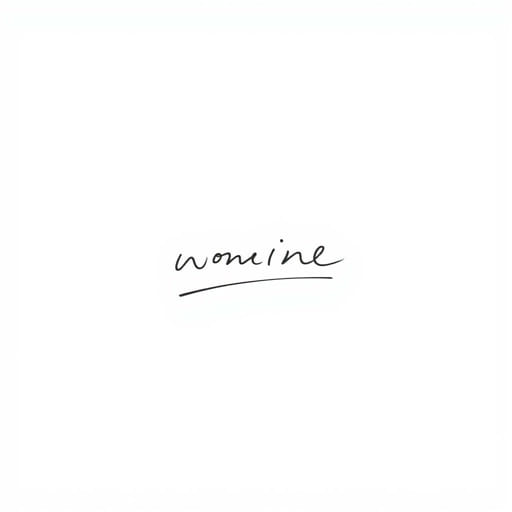Language constantly evolves, and English is filled with words that shift in usage over time. One such term that often causes confusion is penned. Some people question whether penned is a real word, a slang term, or a literary invention. The answer is clear yes, penned is indeed a word in the English language. It is the past tense and past participle of the verb pen, which means to write or compose. While the word might sound slightly archaic or formal, it is still widely used in both spoken and written contexts. Understanding how penned is used and why it is a legitimate word can help improve vocabulary and writing skills.
Understanding the Word ‘Penned’
Definition of ‘Penned’
Penned is a verb that refers to the action of writing something, typically with a pen or in a stylized manner. The word originates from the noun pen, which is an instrument used for writing. Over time, pen evolved into a verb meaning to write, and penned became its past tense form.
Part of Speech
Penned functions as the past tense and past participle of the verb to pen. It is used to describe a completed action in the past. For example:
- She penned a heartfelt letter to her childhood friend.
- The author penned several best-selling novels during his career.
In these examples, penned serves the same grammatical purpose as other regular past tense verbs like wrote or composed.
Is ‘Penned’ a Formal Word?
Register and Tone
Penned is generally considered more formal or literary than its synonym wrote. Writers, journalists, and public speakers might use penned when they want to evoke a more elegant or classic tone. Although it’s not used in casual everyday speech as often as wrote, it’s still perfectly acceptable in both academic and creative writing.
When to Use ‘Penned’
The word penned is ideal when:
- You want to emphasize the deliberate act of writing.
- The context is historical, poetic, or literary.
- You’re referring to notable or formal compositions.
For instance, instead of saying He wrote the speech, saying He penned the speech adds a touch of sophistication and formality to the sentence.
Etymology and Origin of ‘Penned’
Root Word: ‘Pen’
The root of penned is pen, which comes from the Latin word penna, meaning feather or quill. Early writing instruments were often made from bird feathers, hence the connection. Over time, penna evolved through Old French into Middle English as pen, eventually giving rise to the verb form to pen.
Development into a Verb
The transition of pen from a noun to a verb happened centuries ago and became common in literature. By the 17th century, English writers were already using pen as a verb to mean write, and penned naturally followed as its past form.
Examples of ‘Penned’ in Literature and Media
Historical Usage
Famous writers and poets have used penned to describe their creative process. For example:
- He penned a sonnet in praise of the queen.
- Shakespeare penned many of his plays during the Elizabethan era.
Such examples show that penned has long been associated with artistic and literary expression.
Modern Usage
Today, you might see penned in news topics, book reviews, academic journals, and social media. For example:
- The scientist penned an op-ed explaining the dangers of climate change.
- The celebrity penned a memoir about her rise to fame.
In each case, penned is used to describe the act of carefully composing something meaningful.
Common Synonyms and Related Words
Synonyms of ‘Penned’
If you’re looking for alternative words to use instead of penned, here are a few synonyms with subtle differences in meaning:
- Wrote the most common and neutral alternative.
- Composed often used for music or structured texts like essays.
- Authored emphasizes the role of being the creator, especially for books.
- Drafted implies an initial or incomplete version.
- Scripted usually refers to screenwriting or formal dialogues.
Antonyms of ‘Penned’
Words that contrast with penned might include:
- Erased to remove written content.
- Ignored to deliberately avoid writing or mentioning something.
- Spoke verbal communication instead of written.
Grammar and Usage Tips
Correct Tense Use
Always use penned when referring to writing that has already occurred. For example:
- Correct: She penned the topic last week.
- Incorrect: She will penned the topic tomorrow. (Should be will pen.)
Contextual Awareness
While penned is grammatically correct, it may not always be appropriate in casual conversation. For instance, saying I penned a shopping list might sound overly formal or humorous unless you’re being ironic.
Common Misunderstandings About ‘Penned’
Is ‘Penned’ Slang?
No, penned is not slang. It is a formal and standard word in English, recognized in major dictionaries and used in professional writing.
Is It Still Used Today?
Absolutely. While not as common in everyday conversation, penned is still widely used in journalistic, academic, and literary settings. Its slightly poetic feel makes it popular among writers who want to add depth or elegance to their work.
The Validity of ‘Penned’ as a Word
To answer the question clearly yes, penned is a word. It is the past tense and past participle of the verb to pen, meaning to write. Though it might carry a formal or literary tone, it is a legitimate and recognized part of the English language. Whether you’re describing a novelist’s latest work or referring to your own written piece, using penned is both grammatically correct and stylistically effective. Understanding its meaning, usage, and origins allows for more precise and expressive communication in writing. So the next time you want to describe the act of writing with a touch of sophistication, don’t hesitate to say something was penned.
